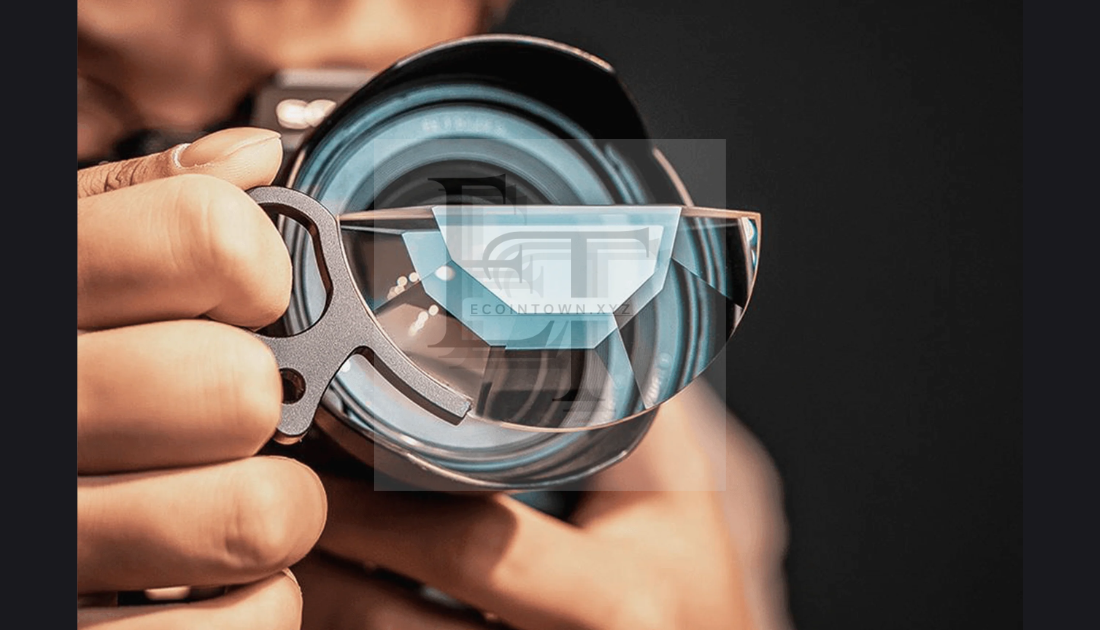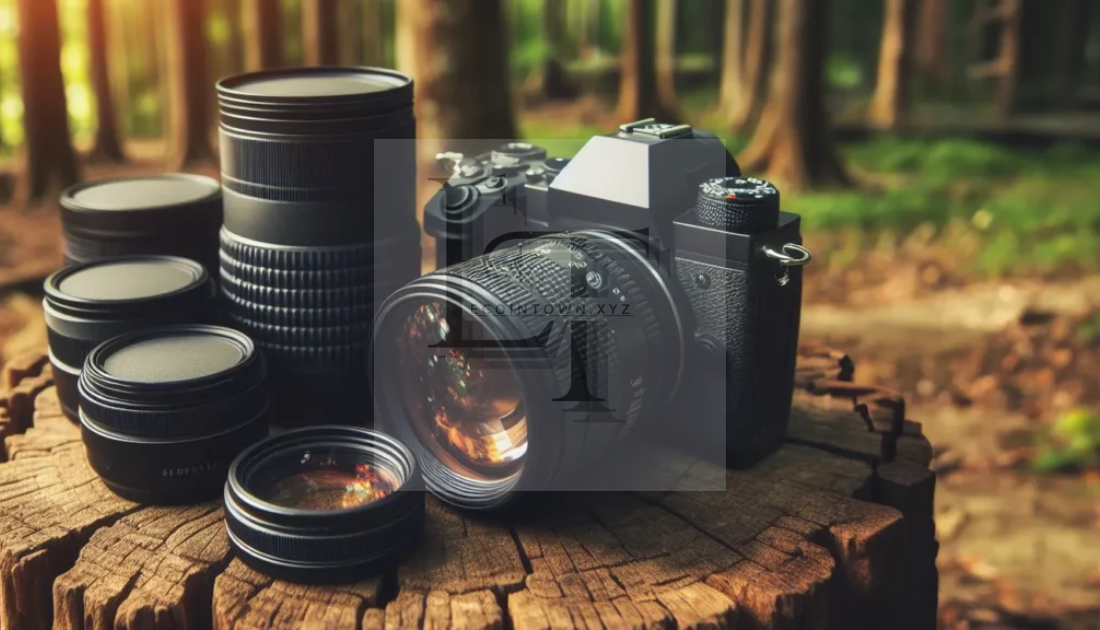For photographers, a camera lens filter is more than just an accessory—it’s a creative tool that can transform ordinary photos into extraordinary works of art. From controlling light and color to enhancing image quality, lens filters play a crucial role in achieving stunning results. Whether you’re a professional photographer or an enthusiast looking to expand your skills, understanding how to use camera lens filters effectively is essential.
What Are Camera Lens Filters?
A camera lens filter is a transparent or semi-transparent piece of glass or resin that attaches to the front of a camera lens. These filters modify the light entering the lens, allowing photographers to achieve various effects that would be difficult or impossible to replicate in post-production.
- Types of Filters
Lens filters come in a variety of types, each serving a specific purpose. Common examples include UV filters, polarizers, and neutral density (ND) filters. - Materials
Filters are typically made from optical glass or high-quality resin. Glass filters provide superior image clarity, while resin filters are lightweight and durable. - Mounting Options
Most filters are screw-on types that attach directly to the lens, but some systems use a holder that accommodates multiple filters.
Why Use Camera Lens Filters?
Using camera lens filters enhances your creative control and improves the quality of your photos. They allow you to manipulate light and color in ways that digital editing cannot fully replicate.
- Protecting Your Lens
A UV or clear protective filter acts as a shield, protecting your lens from scratches, dust, and moisture. This is especially useful in harsh environments. - Controlling Light and Exposure
Filters like ND filters reduce the amount of light entering the lens, allowing for long exposure shots or shooting in bright conditions without overexposing the image. - Enhancing Colors and Reducing Glare
Polarizing filters increase color saturation and reduce reflections from surfaces like water and glass, resulting in more vibrant and detailed photos. - Creating Artistic Effects
Specialty filters, such as soft-focus or graduated filters, add artistic touches to your photos by manipulating focus, color gradients, or light. - Improving Workflow
Using filters during the shoot reduces the need for extensive post-processing, saving time and maintaining image quality.
Common Types of Camera Lens Filters
Understanding the different types of lens filters helps you choose the right one for your specific needs and creative goals.
- UV Filters
- Purpose: Blocks ultraviolet light, reducing haze and improving clarity.
- Best For: Protecting lenses and shooting in bright outdoor conditions.
- Polarizing Filters
- Purpose: Reduces reflections and glare, enhances colors and contrast.
- Best For: Landscapes, water scenes, and bright skies.
- Neutral Density (ND) Filters
- Purpose: Reduces light intensity, enabling slower shutter speeds or wider apertures.
- Best For: Long exposure shots, such as waterfalls or light trails.
- Graduated ND Filters
- Purpose: Balances exposure between bright skies and darker landscapes.
- Best For: Landscape photography with high-contrast lighting.
- Color Filters
- Purpose: Adds or enhances specific colors in the scene.
- Best For: Creative effects and black-and-white photography.
- Infrared Filters
- Purpose: Blocks visible light, allowing only infrared light to pass.
- Best For: Artistic and experimental photography.
- Special Effects Filters
- Purpose: Creates unique effects like starbursts, soft focus, or color gradients.
- Best For: Portraits, abstract photography, and creative projects.
Choosing the Right Camera Lens Filter
Selecting the right filter depends on your photography style, goals, and equipment. Here are some factors to consider when making your choice.
- Lens Compatibility
Check the filter thread size of your lens, usually indicated in millimeters. Match the filter size to your lens for a secure fit. - Filter Quality
Opt for high-quality filters from reputable brands like Hoya, Tiffen, or B+W. Low-quality filters can degrade image quality. - Purpose and Use Case
Choose filters based on your specific needs, such as reducing glare, enhancing colors, or creating long exposure effects. - Budget
Filters range from budget-friendly options to professional-grade products. Invest in a filter that balances cost with quality and durability. - Ease of Use
Consider whether you prefer screw-on filters for simplicity or a holder system for flexibility and versatility.

Tips for Using Camera Lens Filters
To get the most out of your camera lens filters, follow these practical tips. They’ll help you achieve professional results while avoiding common mistakes.
- Keep Them Clean
Dust, fingerprints, and smudges can affect image quality. Use a microfiber cloth and lens cleaner to keep your filters spotless. - Stack Filters Carefully
Avoid stacking too many filters on one lens, as this can cause vignetting or reduce image sharpness. - Use a Tripod for Long Exposures
When using ND filters for long exposure shots, stabilize your camera with a tripod to avoid motion blur. - Experiment with Angles
For polarizing filters, rotate the filter to find the optimal angle for reducing reflections or enhancing colors. - Test in Different Conditions
Try your filters in various lighting conditions to understand their effects and limitations. - Remove Filters When Necessary
In low-light situations, remove filters like ND or polarizers to avoid unnecessarily darkening your image.
Benefits of Investing in Camera Lens Filters
Lens filters offer a range of advantages that can elevate your photography and protect your equipment. Here’s why they’re worth the investment.
- Creative Flexibility
Filters give you control over lighting, colors, and effects, enabling you to explore new creative possibilities. - Time-Saving Workflow
Using filters eliminates the need for extensive editing, allowing you to capture the perfect shot in-camera. - Lens Protection
A simple UV filter can save your lens from damage caused by dust, scratches, or accidental impacts. - Enhanced Professionalism
Filters demonstrate your commitment to quality, helping you deliver professional-grade results. - Increased Versatility
With the right filters, you can tackle diverse photography styles, from landscapes to portraits and beyond.
Popular Camera Lens Filter Brands
Choosing a reliable brand ensures you get high-quality filters that deliver excellent performance. Here are some trusted names in the industry.
- Hoya
Known for their durable and high-performing filters, Hoya offers a wide range of options for photographers of all levels. - Tiffen
Tiffen specializes in professional-grade filters, particularly for cinematic effects and color correction. - B+W
B+W filters are renowned for their precision engineering, superior optical quality, and robust construction. - Lee Filters
Lee is a leader in holder-based filter systems, popular among landscape photographers for their versatility. - Cokin
Cokin’s creative filter systems are ideal for photographers looking to experiment with unique effects.
Conclusion: Master Your Craft with Camera Lens Filters
Camera lens filters are essential tools for photographers who want to elevate their skills and expand their creative horizons. From enhancing colors to enabling breathtaking long exposures, these accessories offer endless possibilities for artistic expression.
By understanding the different types of filters and how to use them effectively, you can take your photography to new heights. Whether you’re capturing stunning landscapes or experimenting with abstract effects, camera lens filters ensure every shot reflects your vision with precision and style. Invest in the right filters today and unlock your camera’s full potential.
